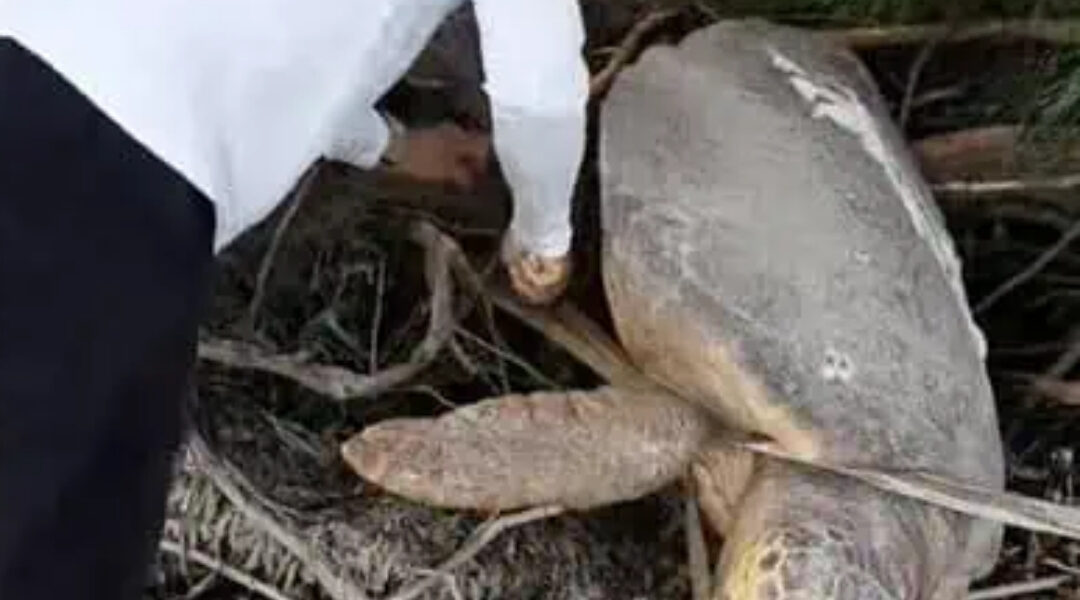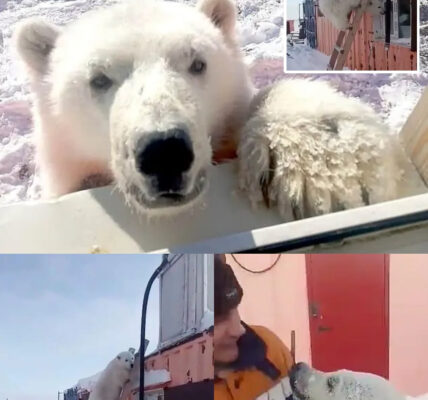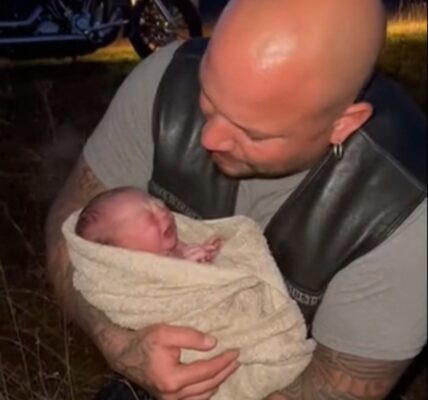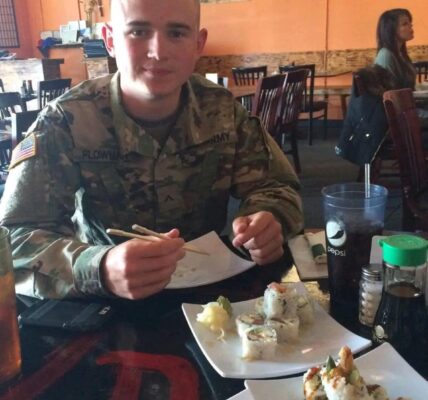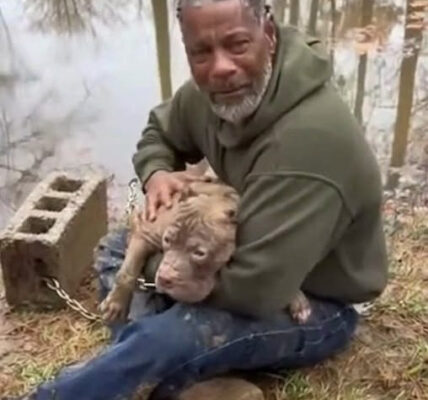The sun was dipping low over the Honduran coastline when Miguel Angel Escobar and his family set out for what was supposed to be a peaceful day on the water. The ocean shimmered in gold and silver tones, and the air carried the quiet hum of distant waves.
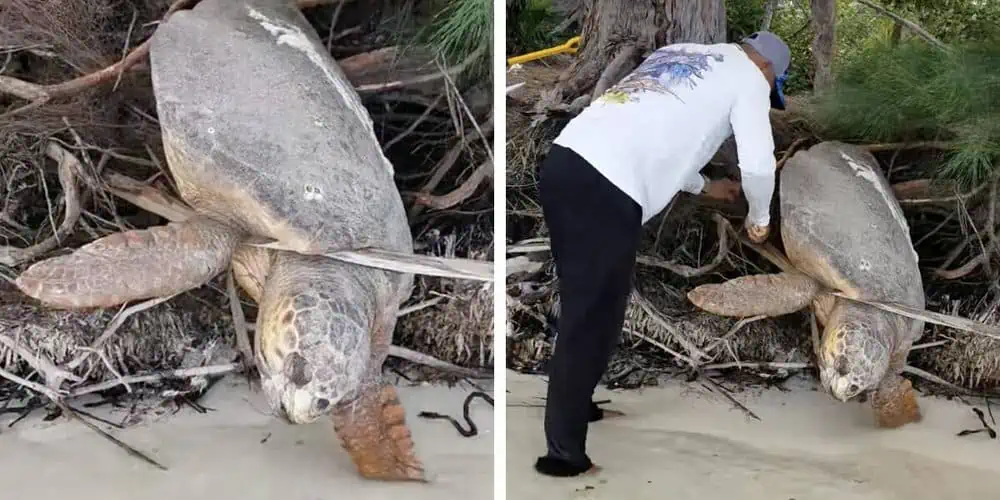
But fate had a different plan for them that day — one that would test their compassion and remind them of the fragile line between life and loss.
As their small boat drifted near a lonely stretch of coast, Escobar’s wife suddenly pointed toward the shoreline. “Look,” she said softly. There, half-buried among twisted tree roots and sand, lay a massive sea turtle.
Her shell was dull and motionless, her body trapped tight beneath a tangle of thick roots.
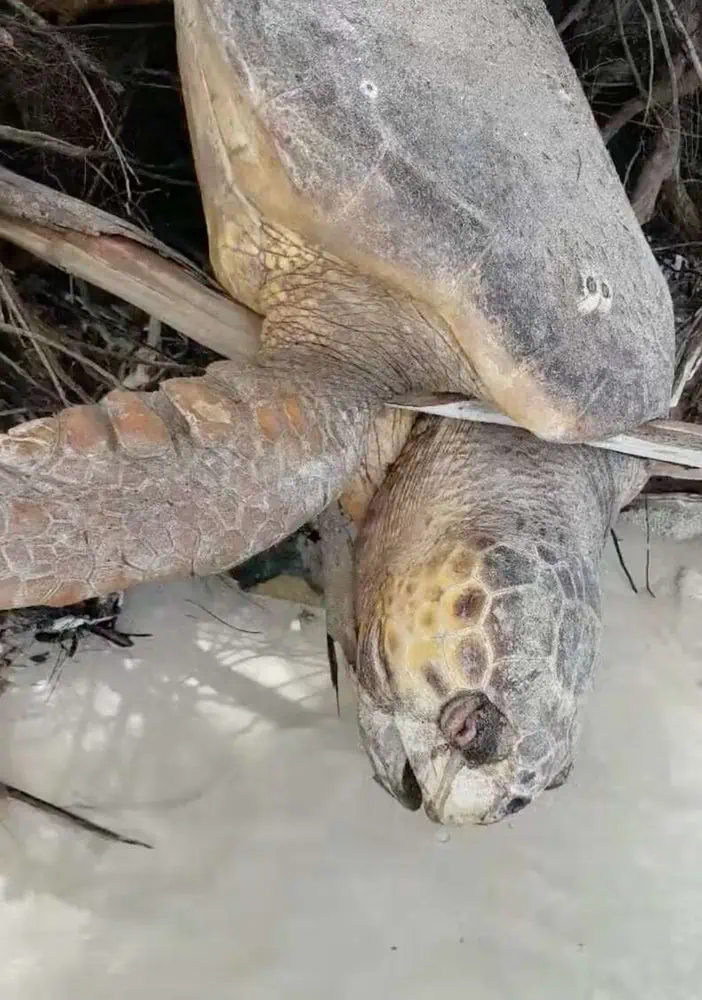
“I thought she was dead,” Escobar recalled. “We felt such pity for her.”
The turtle’s stillness was heartbreaking. She looked like she had given up — her head drooping, her flippers limp. But something in Escobar refused to accept that it was too late. Steering his boat closer, he jumped into the shallows and made his way toward the creature.
At first, nothing happened. The turtle didn’t flinch or stir. Then, as he reached out and gently touched her shell, she let out a long, weary sigh — a sound so human it took his breath away. Slowly, the great turtle lifted her head, her eyes cloudy but alive.
That one faint movement was all the confirmation he needed.
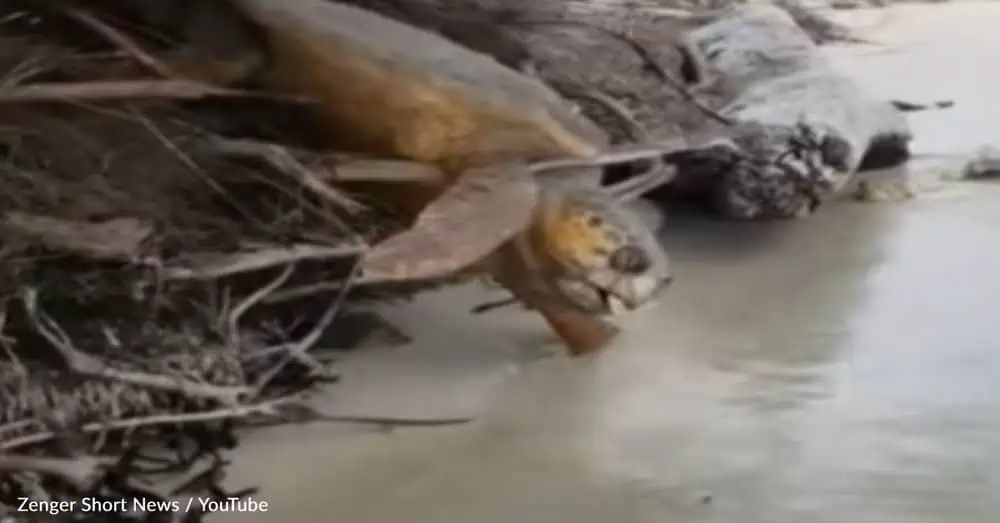
Escobar rushed back to the boat, grabbed a machete, and began hacking away at the thick roots imprisoning her.
Each swing was heavy and deliberate, sweat mixing with seawater as his family watched anxiously from the shore. “Come on, girl,” he murmured under his breath, as if his voice alone could keep her hanging on.
Minute by minute, the roots thinned. Finally, with one last strike, they snapped — and the turtle was free.
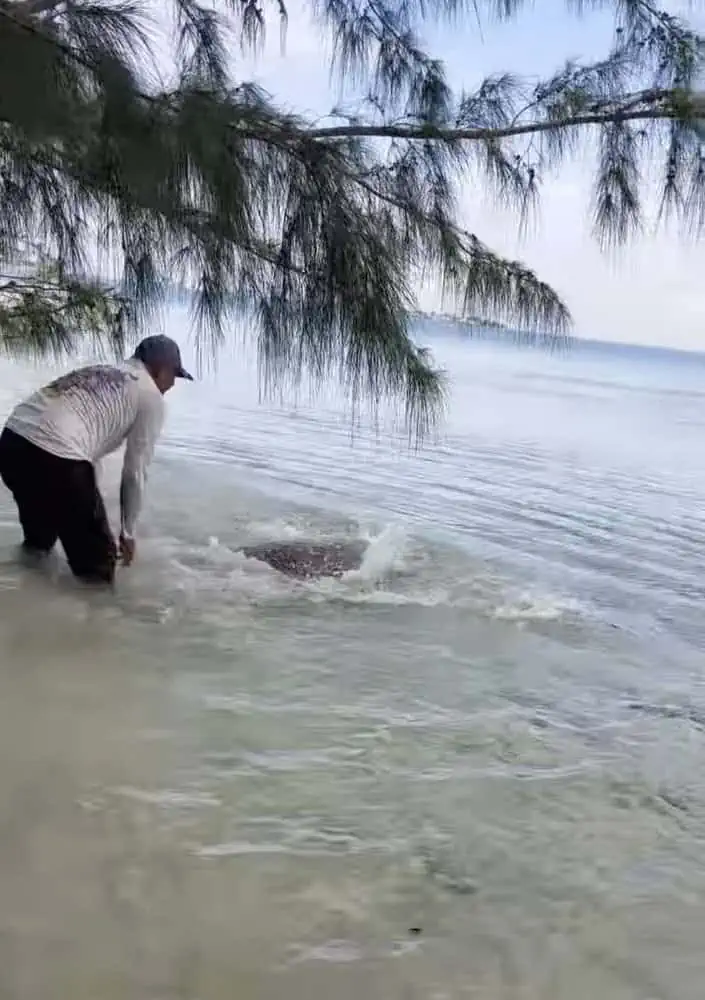
For a moment, she didn’t move. Then, as if awakening from a long nightmare, she pushed forward, dragging herself toward the water.
Her movements were slow at first, uncertain. But then, in a burst of strength, she surged into the waves — powerful, graceful, and alive.
“I thought she would need to rest,” Escobar said later. “But she instantly swam away, strong and fast, like someone jumping for joy.”
The family watched in awe as the turtle paused briefly near the surface, her head bobbing above the water as if to say a silent thank you. Then she disappeared into the deep, leaving only ripples behind — ripples that would carry her story farther than anyone imagined.
Escobar later reflected that the turtle had likely become trapped after coming ashore to lay her eggs.
When the tide went out, she must have struggled to return to the sea and become ensnared in the roots. Days of exhaustion followed — until that moment when hope, quite literally, arrived on the tide.
For Escobar, the rescue was more than just a good deed. “I feel happy to have helped her,” he said. “It’s a great feeling.”
It was a reminder that even in the wildest corners of the earth, compassion still has the power to change the ending of a story — not just for animals, but for all who witness it.
That day, a sea turtle got her second chance at life.
And a family — simply by listening to their hearts — became her miracle.
